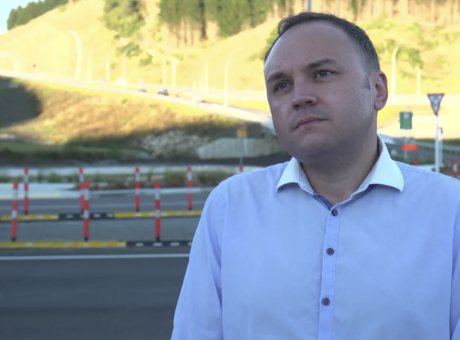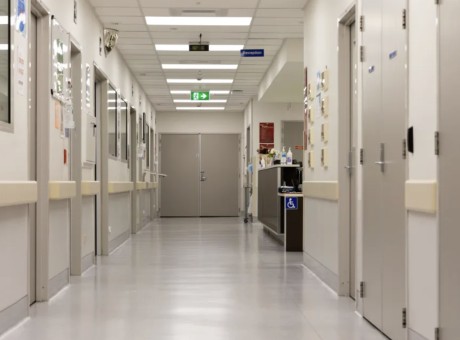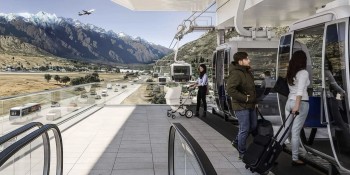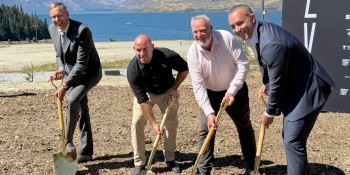Technology being used by Port Otago but A.I not 'mature enough' yet
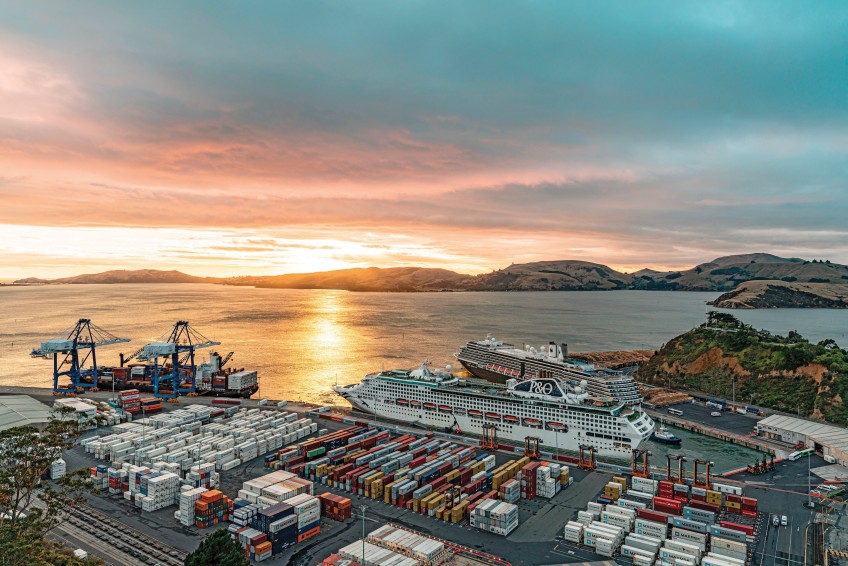
Artificial Intelligence is still not “mature enough” to replace human judgement in a high-risk port environment, Port Otago chief executive Kevin Winders says.
Following the publication of the port’s Statement of Corporate Intent today, Mr Winders told Crux Dunedin the port’s use of AI would remain on a “steady as she goes” basis.
“The port uses AI for specific tasks such as its noise-monitoring software, which assigns noises over a specific threshold to categories, is based on machine learning.
“The team is exploring the use of AI for (a) basic text tasks, ensuring any initial AI-generated draft is thoroughly reviewed and populated with accurate detail and (b) monitoring camera feeds to identify quick safety fixes and trigger alerts - for example when someone lacks PPE in a high-risk area, or if a product stack is sliding slowly off balance in the sheds.
“At this point, AI is not mature enough to be widely used for decision-making in a high-risk workplace, such as ours.
“Our approach is steady as she goes. We are closely observing other similar - but larger - industry organisations, internationally, as they move forward with AI. In this way, we can watch, learn and adopt where and when appropriate.”
However, other technologies are being implemented, with the port’s SoCI stating an increased use of simulator technology and more use of automatisation and digitisation.
Port Otago is wholly-owned by Otago Regional Council and operates across four sites: Port Chalmers, Dunedin Bulk Port, Dunedin Depot and Fiordland. It employs about 330 people and paid $41.8 million in wages and salaries during 2023/24 financial year.
In its Statement of Corporate Intent due to be presented to the council on Wednesday, the port is targeting $39 million in earnings (before interest, taxation, realised and unrealised investment property gains) in the 2025 year, increasing to 42m the year after and $46m in 2027.
Correspondingly, it expects to provide ORC with a $18m dividend in 2025, rising to $20m both both 2026 and 2027.
The SoCI also lists the port’s top material issues in order.
- #1 Safety (same priority as 2023). Ensuring safety is the number one priority for everyone using the port, including our customers, partners and suppliers. A team that is always looking for ways to improve safety and looking out for each other, so everyone goes home safely.
- #2 Leadership (up 2) Aiming for diversity and the right mix of skills within our leadership to be agile and to adapt into the future.
- #3 Wharf capacity & infrastructure (up 9) Balancing wharf capacity between bulk, container and cruise ships. Using a simulator to explore what’s possible in the channel, allowing increased volumes of logs to be loaded at Dunedin Bulk Port. Efficient container throughput to optimise space on a resilient wharf, alongside an inland storage depot for expansion.
- #4 Shipping volatility (up 2) Working closely with shipping lines to build their confidence in visiting the port, achieving as many services with as far a reach, and as much certainty, as possible for all stakeholders. New services include Maersk Polaris transships and ANL, boosting our container business. Demonstrating agility to come up with solutions to shipping challenges across New Zealand as a dynamic port where the team pulls together to get the job done, with efficient container turnaround times and optimum moves per week.
- #5 Strong relationships (down 3) Building strong relationships and true partnerships with our stakeholders (community, iwi, customers, partners, suppliers, shareholder, peers, government, regulators, interest groups, industry bodies) by taking the time to listen to what matters to them, such as farmers doing it tough, and sharing the port’s plans. Being a great neighbour by doing what we say we will do for the community and iwi, such as keeping noise levels down, supporting their needs and human rights. Communicating effectively on the day-to-day, such as progress towards performance commitments on container moves and storage space.
- #6 The best team (down 1) Attracting and retaining the best team for the job by promoting our values in the community and respecting the human rights of our people. Engaging our team by investing in training, including leadership training, providing recognition and succession planning. #7 Culture and wellbeing hauora (up 1) A positive workplace culture prioritising wellbeing (including the Good Yarn programme), where everyone feels they belong and their diversity is valued. Open, honest and consistent communication and leadership across our whole team and the unions on topics such as rosters for better work-life balance.
- #8 Financial performance (down 1) Generating healthy financial returns for our shareholder from a strong capital base via increased revenue and EBITDA. Contributing to the people of Otago via shareholder dividends facilitating reduced regional council rates.
- #9 Nature (up 5) Protecting nature in our harbour by listening to the community and iwi, monitoring things closely and taking action well ahead of any tipping points in harbour health. Protecting the wider environment by developing an overall Harbour Management Plan with our partners. Implementing biosecurity measures specifically to protect our native flora and fauna from these hazards.
- #10 Innovation (down 1) Improving resilience and efficiency in our supply chain with automatisation and digitisation. Working with our customers, shipping lines, infrastructure and logistics partners and peers to innovate and become more agile, using container packing optimisation for example, and supply chain services such as green corridors.
- #11 Climate change (up 5) Measuring, reporting and reducing our carbon emissions with science-based targets to protect our harbour taoka and beyond. Influencing others to do the same, including shipping lines, road and rail transport, customers, partners, suppliers and peers. Being prepared for increasing extreme weather events and related impacts on supply chain logistics and our customers’ operations. Understanding the likely impacts of climate change.
Main image (Supplied): Port Otago has issued its Statement of Corporate Intent as it looks to increase dividends to the regional council.





